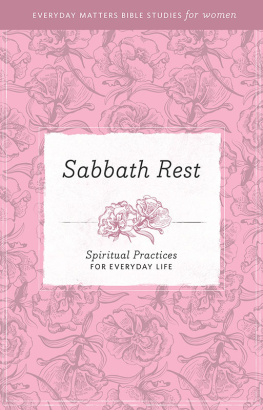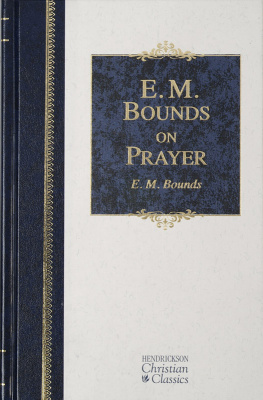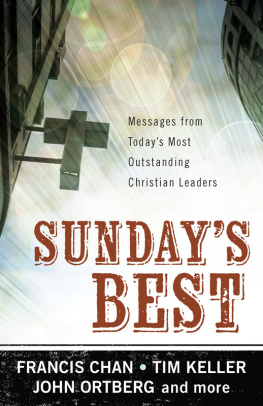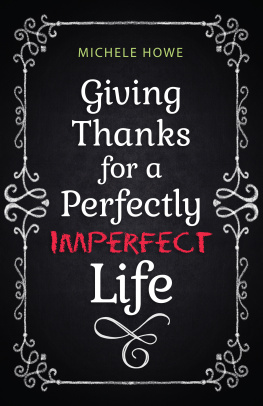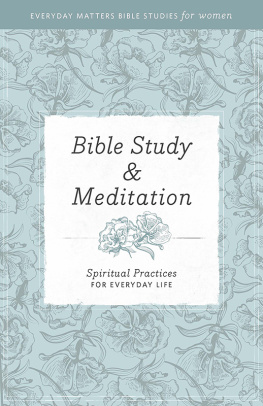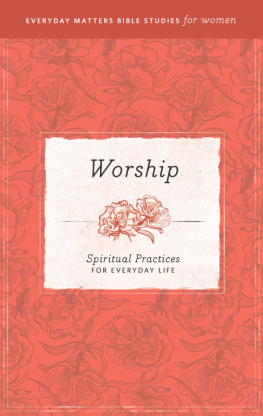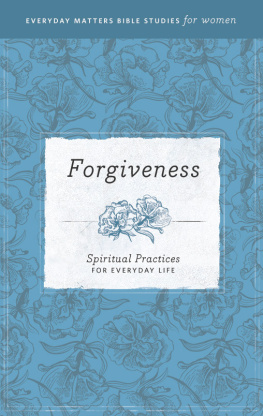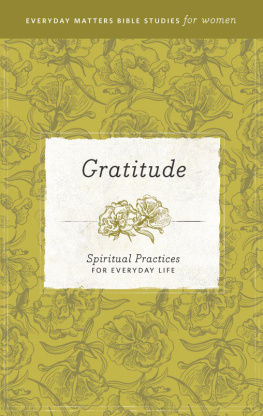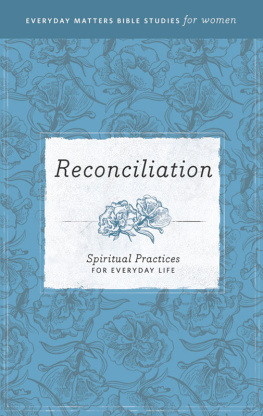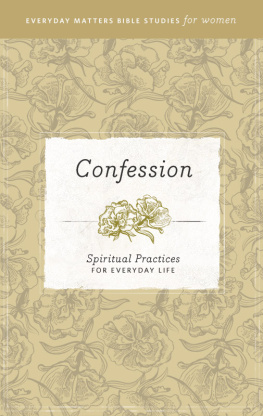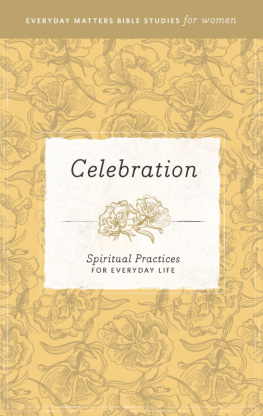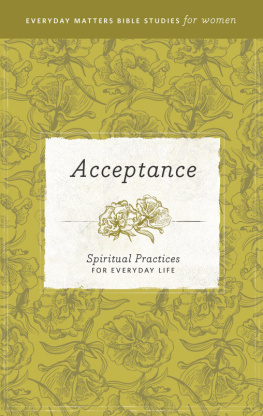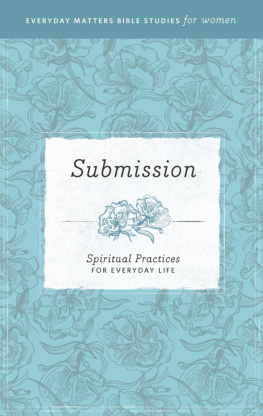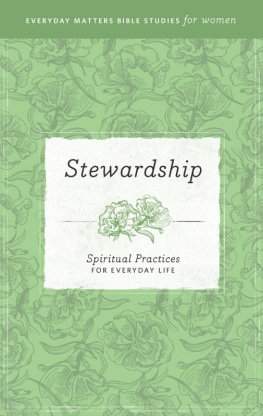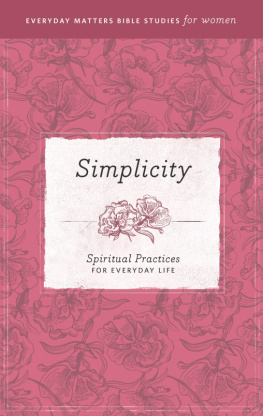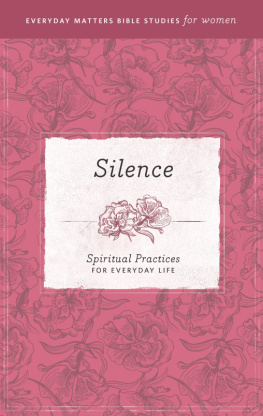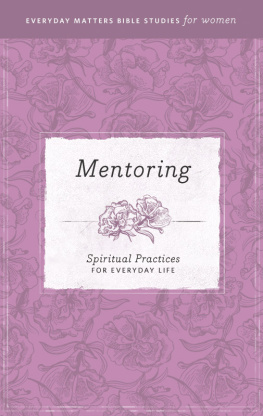P. O. Box 3473
All rights reserved. No part of this book may be reproduced or transmitted in any form or by any means, electronic or mechanical, including photocopying, recording, or by any information storage and retrieval system, without permission in writing from the publisher.
Due to technical issues, this eBook may not contain all of the images or diagrams in the original print edition of the work. In addition, adapting the print edition to the eBook format may require some other layout and feature changes to be made.
Holy Habits
Spiritual Practices for Everyday Life
Everyday life today is busier and more distracting than it has ever been before. While cell phones and texting make it easier to keep track of children and each other, they also make it harder to get away from the demands that overwhelm us. Time, it seems, is a shrinking commodity. But God, the Creator of time, has given us the keys to leading a life that may be challenging but not overwhelming. In fact, he offers us tools to do what seems impossible and come away refreshed and renewed. These tools are called spiritual practices, or spiritual disciplines.
Spiritual practices are holy habits. They are rooted in Gods word, and they go back to creation itself. God has hardwired us to thrive when we obey him, even when it seems like his instructions defy our common sense. When we engage in the holy habits that God has ordained, time takes on a new dimension. What seems impossible is actually easy; its easy because we are tapping into Gods resources.
The holy habits that we call spiritual practices are all geared to position us in a place where we can allow the Holy Spirit to work in us and through us, to grant us power and strength to do the things we cant do on our own. They take us to a place where we can become intimate with God.
While holy habits and everyday life may sound like opposites, they really arent.
As you learn to incorporate spiritual practices into your life, youll find that everyday life is easier. At the same time, you will draw closer to God and come to a place where you can luxuriate in his rich blessings. Here is a simple example. Elizabeth Collings hated running household errands. Picking up dry cleaning, doing the grocery shopping, and chauffeuring her kids felt like a never-ending litany of menial chores. One day she had a simple realization that changed her life. That day she began to use her chore time as a time of prayer and fellowship with God.
Whenever Elizabeth walked the aisle of the supermarket, she prayed for each person who would eat the item of food she selected. On her way to pick up her children, she would lay their lives out before God, asking him to be there for them even when she couldnt. Each errand became an opportunity for fellowship with God. The chore that had been so tedious became a precious part of her routine that she cherished.
The purpose of these study guides is to help you use spiritual practices to make your own life richer, fuller, and deeper. The series includes twenty-four spiritual practices that are the building blocks of Christian spiritual formation. Each practice is a holy habit that has been modeled for us in the Bible. The practices are acceptance, Bible study and meditation, celebration, community, confession, contemplation, faith, fasting, forgiveness, gratitude, hospitality, justice, mentoring, outreach, prayer, reconciliation, Sabbath rest, service, silence, simplicity, solitude, stewardship, submission, and worship.
As you move through the practices that you select, remember Christs promise in Matthew 11:2830:
Come to me, all of you who are weary and carry heavy burdens. Take my yoke upon you. Let me teach you, because I am humble and gentle at heart, and you will find rest for your souls. For my yoke is easy to bear, and the burden I give you is light.
Introduction
to the Practice of Sabbath Rest
The key to the Sabbath isnt merely rest. Rather its that in our rest we turn our attention to God, whose rest our Sabbath mirrors. Lauren F. Winner
Its ironic, and possibly laughable, that we humans cant seem to rest without being told to do so. From the time our language skills kick in, we resist rest. We refuse to take naps, take a break, or take a vacation. And so even in this simple act of not doing, we must be told what to not do.
Depending on the day, most of us would say all we want is to rest, and we wish we could. When we talk about rest, though, we generally dont mean a Sabbath rest. We dont mean a restorative wholeness, a putting right of our lives and relationships. I suspect what we generally are going for is relief. The project at hand is hard, even if were being paid to do it. A relationship gets rocky, and though weve no plan to abandon it, a little break from the tension would be awfully nice.
Its easy to imagine God knowing wed do this badly, and in his wisdom, he placed rest right there in the Ten Commandments so we wouldnt miss it. If that wasnt enough, a quick search of your Bible concordance will show 147 Bible verses addressing the Sabbath. Clearly the Sabbath is a big deal to God. Yet when we as a people need to be told to rest, its a sure sign we will figure out a way to make rest less like rest, a Sabbath less like worship, and more like work. As Jonalyn Fincher says in Mary Magdalene: Meeting the Risen Lord (Everyday Matters Bible for Women), Most of us believe rest is for the weary and faint, the overwhelmed, the sick or depressed. We rest because were forced into it, not because were invited. So our tendency, from the beginning, has been to find a way to make it more about us and less about God.
By the first century, the Jews had been busy codifying for centuries what rest was and was not. Estimates vary, but its generally accepted that at least thirty-nine groupings of activities were prohibited on the Sabbath. It became a day of cannots and shoulds rather than a day of celebrating the freedom and generosity of a life with God. Part of this might be because on the surface, the Jews (and us Christians) are not convinced rest is as spiritual as God made it out to be, Jonalyn Fincher writes. Our goal, as we study the concept of Sabbath rest, will be to redeem it from this legacy and to restore our mind-set of Gods amazing gift. It might be a commandment, but its embedded with the love of a Father, who eagerly desires to give good gifts to his children. And we start with the good news that the Sabbath does bring reliefbut it also brings more. As a spiritual discipline it can create a rhythmic pattern of ceasing our own efforts so we may turn our attention to God.

